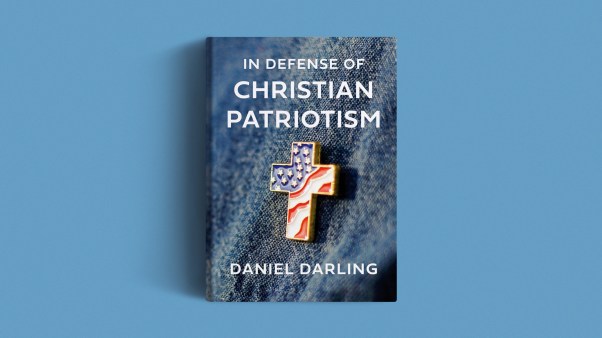This editorial originally appeared in the November 22, 1993, issue of Christianity Today.
A dangerous phrase is floating about pro-life circles these days. Following the murder of Dr. David Gunn and the shooting of Dr. George Tiller, extremists have rationalized those violent acts by calling them justifiable homicide. Fortunately, most people in the pro-life movement intuitively reject attempts to justify the murder of abortionists. But instinct may not serve us well in emotionally compelling situations. We must also think through the reasons for rejecting deadly violence in the abortion struggle.
The logic for justifiable homicide runs like this: If a crazed killer enters your home and threatens the lives of your children, you are justified in grabbing your deer-hunting rifle and shooting the intruder. Likewise, these extremists argue, you are justified in using deadly force to stop a doctor known to be a “serial killer” of fetuses from murdering more.
There are several assumptions in this argument that are worth examining. First, it is assumed one should try to kill a potential killer in order to prevent more killing. But the church has long recognized that the intent to kill is always sinful. The Christian may feel obliged to attempt to stop a madman with an AK-47. And that attempt may result in death. But moral theologians have applied the term justifiable homicide only to that killing which is an unintended secondary effect. The intent must be to protect the innocent. Disabling a killer—whether by hitting him with an unabridged dictionary or by shooting him with a bullet—may result in his death. But it is not permissible under the law of Christ for an individual acting alone to intend to kill another human being.
Second, the analogy requires us to believe that the guilt of an intentional killing can be outweighed by preventing other, unknown, as-yet-not-committed evil acts. Christian ethicists have taught that we are not justified in committing a known evil in order to achieve a good end. Just as we do not cheat on our taxes in order to give more money to missions, we do not murder abortionists in order to bring more babies to term. The end does not justify the means.
Shooting an abortionist, then, is unlike incidental killing in the defense of one’s family: it involves premeditation and sinful intention.
Using evil to fight evil shows impatience with God, who creates both weal and woe (Isa. 45:7). Bad things happen in God’s economy, including cancer, starvation, and murder. We fight bad things in God’s way. We fight cancer with research and medicine. We fight starvation with food and nutritional education. We fight murder by training people in nonviolent conflict resolution. But we will never eradicate these evils in this life. Nevertheless, as Christians we work against evil in positive and constructive ways. “Do not be overcome by evil, but overcome evil with good” (Rom. 12:21), writes the apostle in a classic passage on the importance of submitting to authority and of leaving vengeance to God.
Ultimately, the issue posed by the “justifiable homicide” argument is not ethical but spiritual. It is a question of trust, of having our minds transformed and renewed by God, so that we will hate evil as he does and do good to our enemies as he has taught us. Christians ultimately rest in the knowledge that God’s sovereignty over life and death means that even the most tragic events will in eternity be seen to have worked for good and to contribute to God’s glory.
This editorial originally appeared in the November 22, 1993, issue of Christianity Today.
Copyright © 2003 Christianity Today. Click for reprint information.








